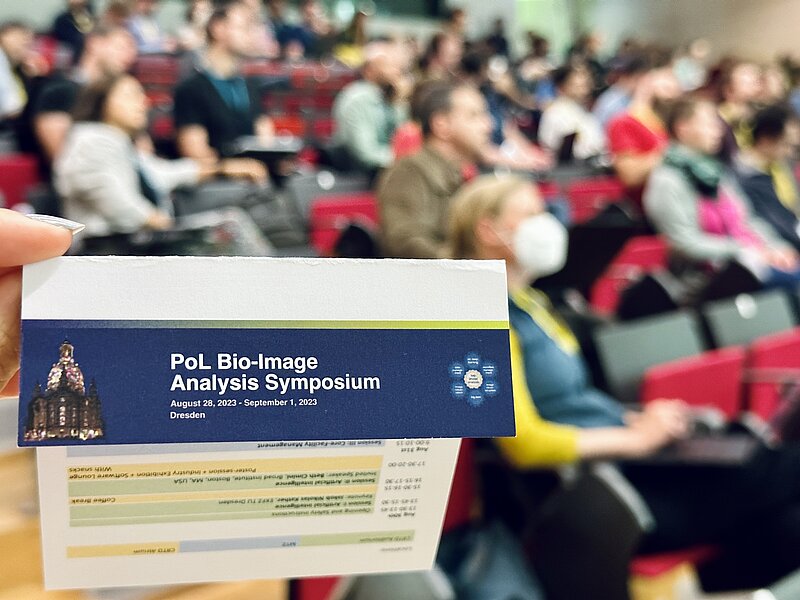Since ancient times, the observation of images has provided relevant insights and advanced science. In modern days, the fast pace of research requires a high level of analytical techniques and data handling. Imaging bio-material at nanometer scales is complex and deserving of an entire field dedicated to it. At the Cluster of Excellence Physics of Life (PoL), we offer a comprehensive infrastructure for bio-imaging analysis, employing modern research methods and techniques.
The growing necessity of this field demands specific training and knowledge exchange to keep up with the rapidly changing characteristics of the field. Our technology group leader, Dr. Robert Haase, is a highly esteemed figure in the field and has established the Bio-Imaging Analysis Training School and Symposium on our campus. For an entire week, Dresden became the center for enthusiasts in the field.
From August 28th to 30th, 2023, the training school for students and junior scientists took place, offering classes for both beginners and experienced scientists on the topic. It supports the development of early-career scientists by providing a solid foundation in this modern knowledge. In the beginners’ course, the basics of image analysis and an overview of Python were provided, while the advanced course covered topics such as HPC, deconvolution, and Clesperanto.
From August 30th to September 1st, 2023, the Bio Imaging Analysis Symposium took place, gathering over 100 scientists in Dresden to discuss a wide range of topics, including artificial intelligence, workflow management, and best practices in image data acquisition, handling, and visualization. Furthermore, current issues faced in the field were discussed in-depth. For example, the large energy consumption due to the size of the data and models in the IA framework.
Training is essential to deliver high-quality research, and PoL is proud to promote and offer this environment, and possible due to the organization's leadership by the Technology Group Leader, Dr. Robert Haase. Additionally, this program was also supported by the Chan Zuckerberg Initiative, an advised fund of the Silicon Valley Community Foundation.
